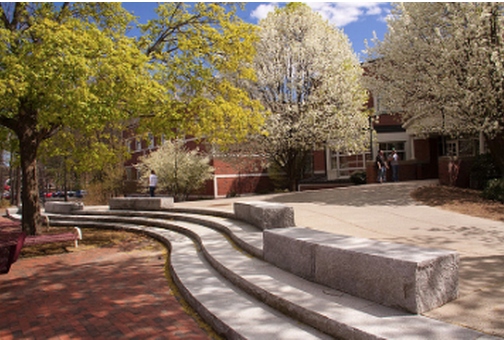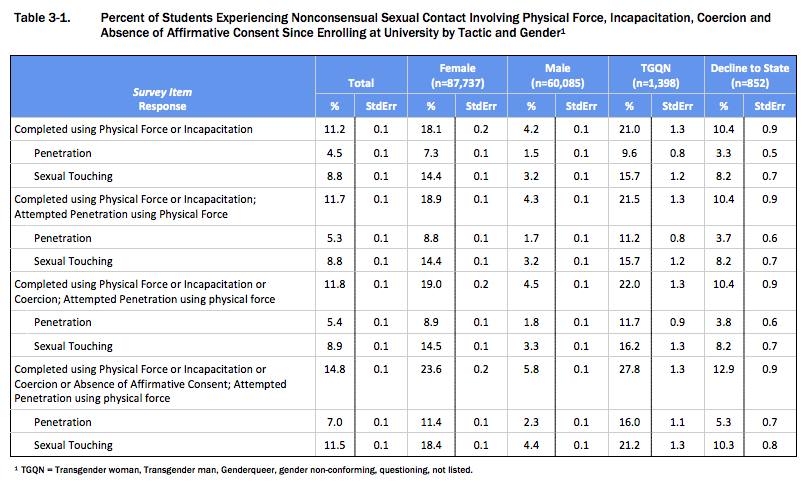
A new survey of 150,000 students at 27 universities finds that 11.7% of students reported experiencing “nonconsensual penetration or sexual touching by force or incapacitation” since enrolling. The survey, by the Association of American Universities with support from Westat, is the largest of its kind.
While the AAU survey results are similar to those found in other, smaller studies, there was significant variability among universities polled. The University of Michigan and University of Southern California, for example, reported rates of sexual violence nearly double those at Cal. Tech and Texas A&M.
According to the report, “Undergraduates identifying as TGQN (transgender, genderqueer, non-conforming, questioning, or not listed on the survey) had the highest rates (12.4%), followed by undergraduate females (10.8%), and graduate (professional) TGQN students (8.3%),” compared to about 4% of males surveyed.
Two of the biggest factors influencing incidence of sexual assault were the involvement of alcohol and drugs and class year. “Among freshmen, 16.9 percent of females reported sexual contact by physical force or incapacitation. This percentage steadily declines by year in school to a low of 11.1% for seniors,” the report says.

Source: "Report on the AAU Campus Climate Survey on Sexual Assault and Misconduct" (Westat, 2015).
The survey also measures cases involving sexual touching, the use of coercion, and the lack of affirmative consent (categories that may include many non-criminal acts). Using this broader measure, the researchers say that “one-third (33.1%) of senior females and 39.1 percent of seniors identifying as TGQN report being a victim of nonconsensual sexual contact at least once.”
Noting the large differences between individual schools, Rebecca O’Connor, RAINN’s vice president for public policy, said, “These findings demonstrate the need for a national, standardized campus climate survey. This type of rigorous and routine baseline data collection, which would be required under the Campus Accountability and Safety Act ( S.590
/ H.R. 1310), is imperative. Without this data, it’s difficult to understand the true scope of the problem, let alone advance policies that will truly improve prevention and response for these serious crimes.”
Congressional focus on campus sexual violence and related reforms remain front and center. At a hearing of the House Education and Workforce Committee earlier this month, Rep. Virginia Foxx (R-NC) said, “This is a matter of national importance – how can we better protect our students?” Witnesses, who included college administrators and advocates, spoke to the inherent challenges schools face when addressing the difficult topic of campus sexual assault, from ensuring that the rights and needs of both victims and the accused are protected, to ensuring that a tangled web of state and federal mandates are fulfilled.
As Congress moves into a busy fall season, you can help make sure this issue remains on the agenda. Stay up to date and be part of the solution by visiting RAINN’s Action Center.